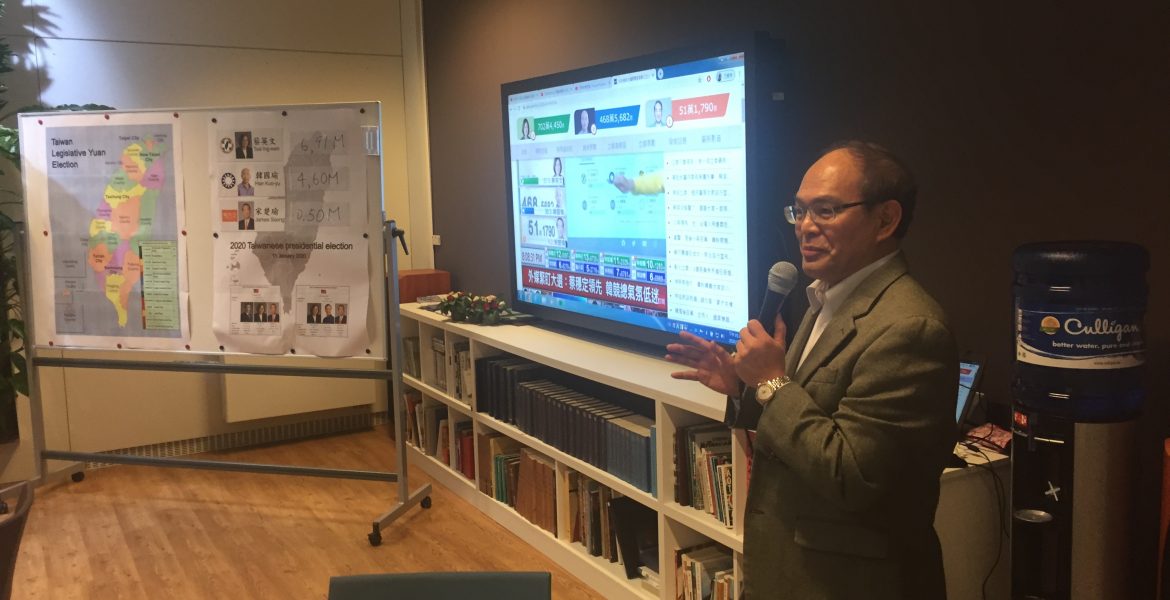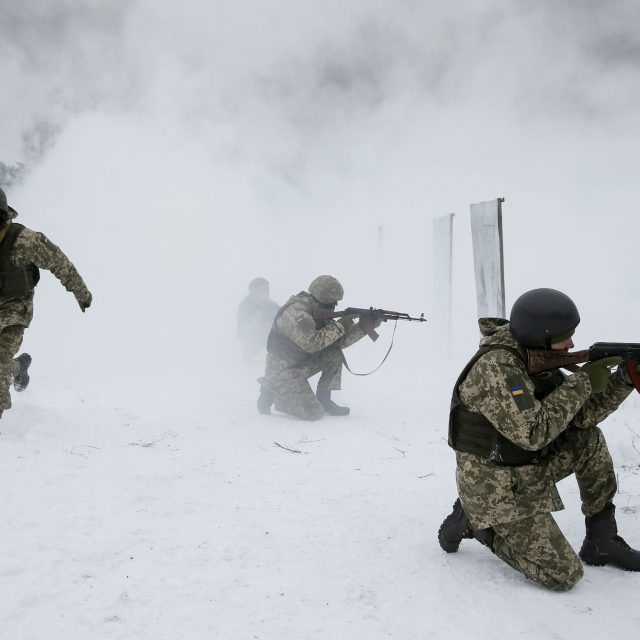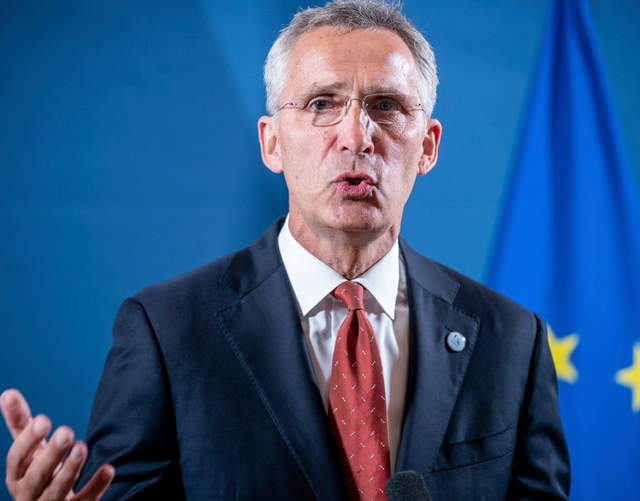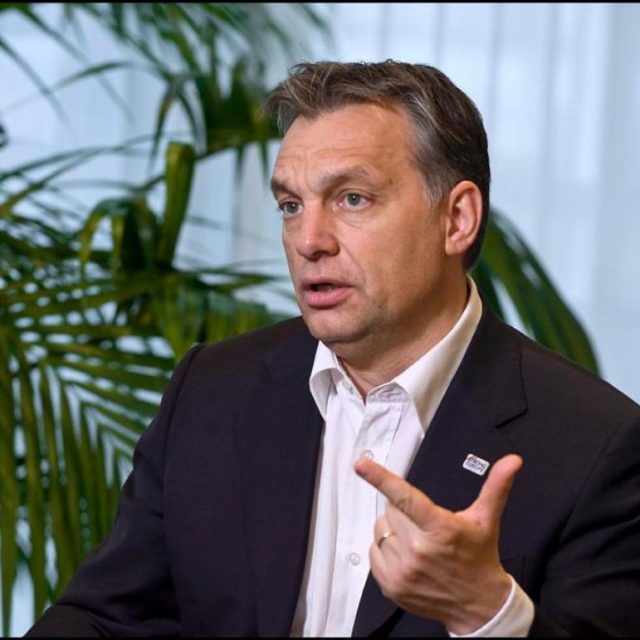The Taipei Representative Office in Brussels organised a reception today at their Embassy to share the results of Taiwan’s election as they came in live, including a TV broadcast of President Tsai’s victory speech.
The event helped to deliver a strong impression to the audience of international journalists, academics and lawmakers that Taiwan’s young democracy is vibrant, and that Taiwan’s 30 million strong population is proud of their national identity.
With more than 75% of the votes counted in the Presidential elections in Taiwan, the Kuo Min Tang (KMT) candidate HAN Kuo-yu gracefully conceded defeat, confirming a landslide victory for President TSAI Ing-wen of the Democratic People’s party (DPP). The third candidate James Soong of the PFP trailed far behind with just over 600 000 votes.
President Tsai received over 8.1 million votes (57% of the votes cast), compared with 6.8 million votes for her in the 2016 elections. There was a strong turnout of more than 75% of Taiwan’s 19 million eligible voters this time compared with 66% in 2016. This year the polling stations were only open for 8 hours, which makes the high voter turnout figures even more remarkable.
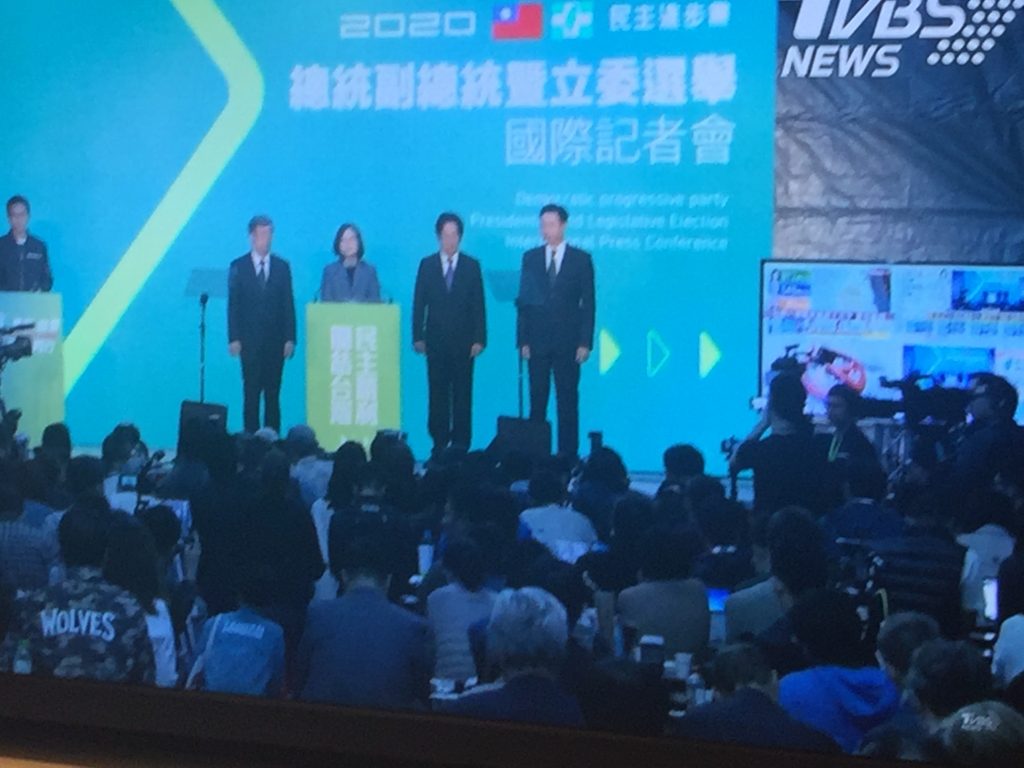
Her nearest opponent HAN Kuo-yu (KMT) managed to secure only 5.5 million votes, and this humiliating electoral loss for the KMT immediately triggered the resignation of the KMT party chairman, who accepted responsibility for the defeat. It is not clear what will now happen to the KMT, but their electoral platform clearly failed to catch the mood of Taiwanese public opinion. As much as the KMT were shocked by the heaviness of their defeat, the DPP were also surprised by the margin of their victory.
This result is an endorsement that the President and her team have been moving in the right direction over the past 4 years, but in her victory speech delivered at an international press conference in Chinese and English, President Tsai vowed that she would not be complacent, and going forward she would work hard to improve on what had been achieved already.
She paid tribute to her electoral opponents, and thanked them for contributing through their participation in the election to Taiwan’s reputation as a model democracy. In the spirit of unity, she appealed to her political colleagues in the DPP to put behind them any disputes or conflict that may have arisen in the electoral campaign, and work together across all of the political parties to promote the democratic interests of the Taiwanese people, and respect for Taiwan’s international reputation.
Most importantly she stressed that the election result sent a strong signal to the world that Taiwan was committed to democratic values, and that the people had rejected the intimidating proposal of the mainland Chinese Communist Party to Taiwan to follow the “one country two systems” solution that China has been trying to apply to Hong Kong.
The Taiwanese people would not provoke and were not confrontational, but when they felt that their democracy or security was threatened or intimidated, they would shout out aloud to protect their values. It was clear from the high voter turnout at this election (more than 75%), and from the margin of victory, that the Taiwanese people wished to retain their freedom and their own democracy.
President Tsai stressed that she was committed to the long term stable development of peaceful and prosperous bilateral relations with China, provided that this was conducted in a spirit of peace, parity, democracy and dialogue.
Simultaneously with the Presidential election, there were elections to Taiwan’s Legislature, and whilst the DPP lost 7 seats compared with the 2014 elections, they still retain an overall majority in the country’s “Yuan” (Parliament), with the other two parties represented being the KMT and the Taiwan People’s Party (TPP) led by the Mayor of Taipei KO Wen-je.

